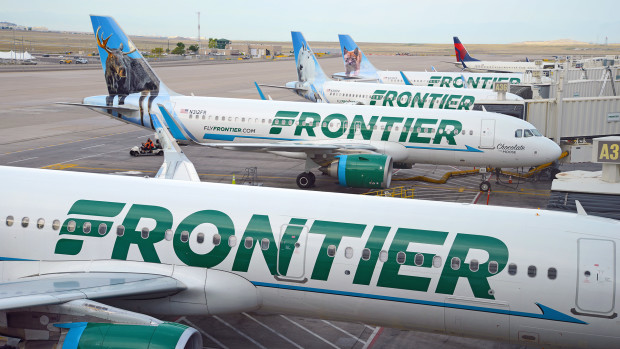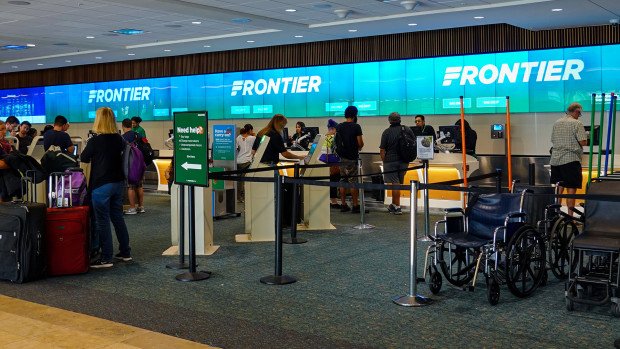
Consumers are about to see a change in travel, and they might not be prepared for it.
Frontier Airlines and Allegiant Air, two low-cost budget airlines, are both making a change that could impact travel in the coming months. The two companies, which sell air travel using an a la carte model,-- your ticket just gets you on the plane and luggage, a seat assignment, and basically anything else costs you money -- are trying to give the people what they want.
DON'T MISS: Southwest Airlines Brings Back a Popular Promotion
Low-cost airlines sacrifice pretty much everything in favor of offering a low base fare. Neither Allegiant Air (ALGT) -) nor Frontier Airlines (ULCC) -) has endeared itself to the public using that model. Both companies sit at the bottom of the annual American Customer Satisfaction Index (ACSI) Airlines Report with only Spirit Airlines (SAVE) -), which uses the same business model ranking lower.
That's not actually the point though. Low-cost carriers aren't trying to be liked, they're trying to be the lowest-cost option. People may not like Allegiant, Frontier, and Spirit but they will fly the airlines when it makes sense based on their budget and travel needs
In most cases, air travel is in the most demand on Monday mornings, Thursday, Friday, and Sunday afternoons. Demand is lowest on Tuesday and Wednesday so Frontier and Allegiant are actually making scheduling changes based on putting more flights when people actually want to fly.

Allegiant and Frontier Change Their Schedules
The summer travel season is coming to a close soon and airlines are making plans to adjust their flight offerings to accommodate that shift in demand. Frontier Airlines will be pulling back on the number of flights it has available during Tuesdays and Wednesdays according to Travel Weekly. Available travel on those weekdays will be reduced by 20%.
Business travel has seen a decrease since the covid pandemic, now more people are able to work in a hybrid model which has impacted travel needs. "While overall leisure travel is increasing, the benefit is disproportionately landing on peak days and in peak travel periods," said the senior vice president of commercial for Frontier Airlines Daniel Shurz about the reduction in available flights.
Part of keeping costs low for travelers means less availability, so while customers get more of the low prices they want, it comes with fewer choices of when to fly. Consumers want cheap flights. They just aren’t going to get the flights on Tuesdays or Wednesdays.
If you see this, it’s time to book that trip. https://t.co/WdGm3u2FaC
— Frontier Airlines (@FlyFrontier) July 20, 2023
Terms and conditions apply. pic.twitter.com/SCO7Di83nx
Allegiant Air has made the same changes, but even more dramatically yet quietly about this change in the available flights.
"Making these slight network reductions allows us to allocate our resources where they're most needed, ultimately helping us enhance our reliability and better serve our customers," Allegiant spokesman Hector Mejia told Travel Weekly, acknowledging this change in the flight schedule.
Airlines Have Had to Make Tough Choices
A number of airlines have cut their schedules by up to 10% out of New York and Washington D.C. due to a shortage of air traffic controllers. That shortage led the Federal Aviation Administration (FAA) to temporarily allow airlines operating at those airports to not use all of their slots.
Frontier has also made other recent cuts,.
Reducing the number of flights isn't a new concept for running an airline. Frontier reduced available flights last summer as well, they cited the shortage of pilots according to East Valley Tribune, and not the consumer demand.
“Earlier this year, due to market conditions, including industry-wide staffing shortages and high fuel prices, we proactively made some capacity reductions to our summer schedule," said in a statement made to the East Valley Tribune.







